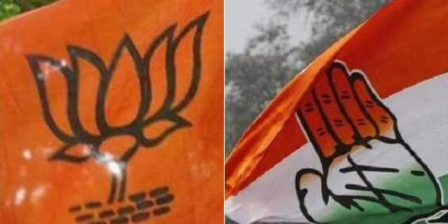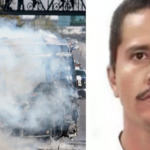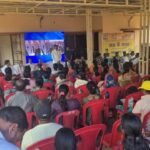Excise policy scam case: SC reserves order on Kejriwal’s pleas for bail, against arrest by CBI
NEW DELHI, SEPT 5 : The Supreme Court on Thursday reserved its verdict on Delhi Chief Minister Arvind Kejriwal’s separate pleas seeking bail and challenging his arrest by the CBI in the Delhi excise policy case.
A two-judge bench of the top court, led by Justice Surya Kant and Justice Ujjal Bhuyan, after a daylong hearing on Thursday, reserved the verdict on Kejriwal’s pleas.
The SC had, in detail heard the arguments and submissions from Kejriwal and the CBI. Kejriwal was represented by his senior lawyer Abhishek Manu Singhvi and CBI was represented by advocate and Senior Additional Solicitor General (ASG) S V Raju.
Singhvi argued that there was something remarkable and unprecedented.
This is perhaps the only case where Kejriwal got two release orders under PMLA stringent law which has a bar of Section 45 from the apex court and another detailed order from HC. Then there was this insurance arrest in the predicate offence by CBI, Singhvi said.
He argued that Kejriwal was not named in the CBI FIR however, he was later called by CBI for questioning for about eight to nine hours as a witness. On March 24, Kejriwal was arrested by the ED and not CBI.
Opposing the argument of Singhvi, the ASG Raju, said, the accused, Kejriwal, approached the High court without going to the sessions court.
“This is my preliminary objection. On merits, the trial court could have seen it first. HC was made to see merits and it can only be in exceptional cases. In ordinary cases, sessions court has to be approached first,” he said.
“They came here and then they approached the High Court and then again they came to sc and then this court decided the matter,” he added.
SC to hear Delhi CM Kejriwal’s plea challenging CBI arrest in excise policy case on Sept 5
Raju also argued that because Kejriwal is an influential person he can keep playing “snake and ladder”, however, if it were the same for common people he should not be granted bail.
Kejriwal was already granted bail by the SC on July 12, in the same case. He was arrested by the CBI on June 26.
The CBI earlier in its affidavit filed before the Supreme Court said that Kejriwal would tamper with evidence if he was granted interim bail.
The CBI filed its reply in the top court while responding to the pleas filed by Kejriwal seeking quashing of his arrest and interim bail by the Central agency.
“Being a prominent politician and Chief Minister of Delhi, the Petitioner (Arvind Kejriwal) is very influential, and he may influence the witnesses and evidence already exposed before him during the custodial interrogation and also the potential witnesses. He will also likely tamper with the evidence to be further collected and may hamper the ongoing investigation,” the Central Bureau of Investigation (CBI) in its affidavit, told the SC.
The CBI made it clear in its affidavit that despite repeated orders passed by various courts being prima facie satisfied with the commission of the offences herein, for which cognisance already has been taken, the petitioner was simply attempting to politically sensationalise the case before this Court.
“Such unwarranted averments are liable to be discarded,” the CBI said in its affidavit filed before the top court.
The Supreme Court had earlier on August 14 refused to grant any interim relief to Kejriwal and issued notice to the CBI and sought its detailed response by August 23 on his plea challenging his arrest by the agency in connection with the Delhi excise policy case, where he was being currently probed by the CBI.
In one of the hearings, Singhvi said that the CM’s arrest by CBI, in June, was an “insurance arrest’ as it was effected at a time when Kejriwal was on the cusp of getting bail in the more stringent ED case under PMLA.
Singhvi pleaded to the apex court for interim bail to Kejriwal on health grounds, however, the apex court declined it.
The lawyer added that this was a strange situation. Three orders of release/bail under PMLA and this was a rejection of bail in a case not even dealing with section 45 of the Prevention of Money Laundering Act (PMLA).
“There were three orders, one in May, one in June and then a regular bail by the trial court in the ED case which was later stayed. Then the CBI investigated and interrogated Kejriwal one year ago,” Singhvi added.
Narrating the case details, he said that when the SC on July 12 passed a detailed judgment and then this arrest was made by the CBI which was an “Insurance arrest.
Kejriwal in his plea had termed his “arrest by the CBI as illegal” and sought quashing of it.
On August 5, the Delhi High Court upheld the arrest of Chief Minister Arvind Kejriwal by the Central Bureau of Investigation (CBI) in connection with the alleged excise policy scam. This decision marks a severe blow to the Aam Aadmi Party (AAP) leader’s efforts to challenge the arrest.
Justice Neena Bansal Krishna, presiding over the case, dismissed Kejriwal’s plea contesting his arrest, stating that it was conducted with justifiable reason. Alongside this, the court disposed of Kejriwal’s bail plea, advising him to seek relief from the trial court.
The HC had reserved its verdict on July 17 regarding Kejriwal’s challenge to his arrest by the CBI and on July 29 regarding his bail plea after hearing arguments from both Kejriwal’s counsel and the central agency.
The HC in its judgment noted that the petitioner is not an ordinary person but it is the Chief Minister of NCT of Delhi and the convener of AAP, which has its Government in Punjab.
“There were links of this crime even in Punjab but the material witnesses were not forthcoming for the simple reason of the influence exercised by the petitioner, by virtue of his position. It is only when he was arrested that the witnesses from the Punjab came forth to get their statements recorded and in fact, two of those witnesses, turned approver against the petitioner,” it read.
The court also observed that the argument of the Special Public Prosecutor has merit.
“It is correct and true that the petitioner herein is not an ordinary citizen of this country but is a distinguished holder of the Magsaysay Award and a convenor of AAP. The control and the influence which he has on the witnesses is prima facie borne out from the fact that these witnesses could muster the courage to be witnesses only after the arrest of the petitioner, as highlighted by the learned Special Prosecutor,” the judgment read
“Also, it establishes that the loop of evidence against the Petitioner was closed after the collection of relevant evidence after his arrest. No malice whatsoever can be gathered from the acts of the respondent,” the judgment further read.
While dismissing the bail plea, the court in its order said that it is more to the benefit of the petitioner, considering the complexity and the web of the facts and the material on record, to comprehensively determine the role of the petitioner in this alleged conspiracy to determine if he is entitled to bail.
“It may also be noted that when the Bail application was filed before this Court, the Charge-Sheet had not been filed. However, in the changed circumstances, when the Charge-Sheet has already been filed before the learned Special Judge, it would be in the benefit of the petitioner, to first approach the Court of Sessions Judge,” the order read.
Kejriwal was taken into CBI custody on June 26 while he was already in judicial custody at Tihar Jail related to a money laundering case filed by the ED.
Initially arrested by the ED on March 21, Kejriwal was granted bail by the trial court on June 20 in the money laundering case. However, the high court stayed this order. On July 12, the Supreme Court granted him interim bail in the money laundering case.
-PTI






